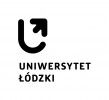124,9% of the attendance at the XXI International Festival of Plays Pleasant and Unpleasant
10 performances presenting the spectrum of Polish and European theatre, discussion on the condition of an artist, an academic session showing the works of Kantor as related to the world avant-garde and the exhibition dedicated to Swinarski. During the XXI edition of the International Festival of Plays Pleasant and Unpleasant with always more than full audience (the attendance during this edition amounted to 124,9%) artists and the spectators discussed about who a contemporary artist is. They were trying to find answers to questions raised by Ewa Pilawska, the artistic director of the Festival.
„Remarkably artistic” discussion on the condition of an artist began with phenomenal Woodcutters (Holzfällen) by Krystian Lupa. It is a play about the creator who finds himself in an impasse. In this context a question - is a contemporary artist in crisis? - sounded very strongly. A discussion, moderated by Jacek Żakowski (participants – Anda Rottenberg, Krystian Lupa, Krzysztof Mieszkowski, Jan Hartman and Olgierd Łukaszewicz) developed that issue. The very contemporary Forefathers’ Eve is a collage of the 19th century literature, film, facts, popular figures, movie stars. The play was trying to answer another question – does a contemporary artist defy the order of the world? Is it possible that the 19th century text is still valid? And how was this issue interpreted by the Austrian National Theatre? Funny Darkness, a performance of the Burgtheater in Vienna, in a funny, ironic and at the same time extremely sad manner describes our inability to understand strangeness – other cultures, another man and eventually ourselves. After all, it was an artistic reflection on a question – does a contemporary artist still believe that art can change the status quo? With this in the background, what is the overtone of the Moliere’s School for Wives? It is a symbolic turn towards art and theatre which is constantly searching for answers and making a diagnosis of reality. The diagnosis concerning the tragedy of interpersonal relations. As a result one should wonder – does a contemporary artist put the theses? Is the lack of courage in putting theses a problem of the contemporary world?
Proof of Another’s Existence, a confrontation of Gombrowicz and Mrożek, revealed universal problems associated with the identity of an artist. Does a contemporary artist believe in what he is doing? Is he doing what he believes in? Does a contemporary artist raise unanswered questions? – these fundamental questions are still valid. They refer to the meeting of the writers, to the performance, as well as to the contemporary (and future) discussions on the condition of an artist. Other aspects were stressed by Chopin Without Piano – however, this time it is not the question about the artist’s condition but about shaping his condition and identity by others –recipients, critics, musicians as well as Poles in general. What are Chopin’s works for us today? How can we listen to them – do we have a burden of patterns imposed on us? Whose opinion determines the value of the work nowadays?
Broniewski – episodes from the fascinating biography of “a Pole, a catholic, an alcoholic” - make up for the picture of a man, a rebel, who was faithful to his ideals though he paradoxically was perceived as a conformist.Does a contemporary artist need obstacles which he must overcome? Is a struggle in the field of art needed today? Does it make sense? – these are only a few questions raised by Broniewski. Machia is a striking story about the condition of an artist, his involvement and inability of going beyond arrangements and political connotations. It is dedicated to Niccolò Machiavelli. His picture is presented here with the Italian Renaissance in the background. After all, is a contemporary artist always a conformist to some extent? A play by Juliusz Machulski is a portait of the artist, functioning between choice and necessity, the right of self-determination and involvement in the systems, socio-political context and human relationships. He is an artist who is observing the reality and questioning its structure. Are there any questions that should not be asked? The Road of Slippery Grass… indicates the need to talk about the human nature – the nature of good and evil. But still, as the nature of a man is dual, so is the condition of an artist. It is torn, changeable and dependent on the circumstances. The performance of the theatre from Legnica exposes yet another aspect of the condition of an artist. Its directors, and also actors, are Katarzyna Dworak and Paweł Wolak. They are creating a theatrical work from the inside, and yet participating in it. It is a completely different look at the performance, so different from the point of view of the creator evaluating his work from the distance. Playing the part changes the view. Emotions and situation on stage become more important. The same situation occurs in The Exhausted, performance presented at the end of the Festival. Claude Bardouil is a director of the play and the actor as well. The performance is a metaphor of being confined to a body. Incarnation of thoughts about the body. The inspiration is an American girl who became one of the world’s most popular porn actresses. The body is expressing emotions with very suggestive moves and convulsions and it is only a metaphor of what is non-physical. It provokes reflection on another question – is a contemporary artist overwhelmed by the awareness of exhaustion?
So what is the condition of an artist? The question remains unanswered. The reply is suspended in the space between the spectator and the creator, in the discussion about the art, theatre and the artist. Because the Festival is always an attempt to take up the dialogue with the spectator. And respect for the viewer is one of the key aspects of building repertoire and the artistic expression of the Festival. The performances during the Festival in Lodz are presented so that their artistic expression is as close to the quality of the presentation on the home stage as possible. That is why, especially for the Festival, Sława Lisiecka was asked to translate into Polish the text of FunnyDarkness by Wolfram Lotz produced by the Vienna Burgtheater. She is a recognized interpreter. Thanks to her translation the text did not lose inherent advantages of the artistic and literary nuances which are the value of the art. The audience in Lodz could see a complete and perfect work. Also, for respect for the audience, the artistic expression, the artists and their work Chopin Without Piano was performed at The Artur Rubinstein Philharmonic in Lodz with the participation of the symphonic orchestra (although we could present the performance at much cheaper expense – in Powszechny Theatre with only a few musicians). This was also a reason to show the Warsaw’s National Theatre performance (Proof of Another’s Existence ) on the Small Stage of Powszechny Theatre. This performance requires a soft, intimate space that only our Small Stage could provide. One could say it is uneconomical and if the performances were moved to the Big Stage more spectators could visit us. However the theatre should not reach for the compromise and the Festival should care for the best artistic expression of the work. But then, at the end, there is always one question that remains – if we are uncompromising towards the transfer of the work of art or if we are acting in the name of protecting the artists, are we creating another, added value? Are we creating the opportunity for the discussion about the art? I believe we are – underlines director Ewa Pilawska.
On the one hand the Festival is trying to expand the spectator’s look on the art, on the other it comes from listening intently to the voice of the audience. The same audience that in the Plebiscite choose The Best Performance, The Best Actress and The Best Actor.
This year the title of The Best Actress was granted by the audience to the whole cast of Funny Darkness, directed by Dušan David Pařízek, produced by Burgtheater in Vienna – Catrin Striebeck, Stefanie Reinsperger, Dorothee Hartinger, Frida-Lovis Hamann. Robert Ninkiewicz was awarded the title of The Best Actor for the role of Broniewski (the old) in Broniewski, directed by Adam Orzechowski, produced by Wybrzeże Theatre in Gdańsk. Broniewski was recognized by the audience as The Best Performance. Congratulations!
Thank you for being with us!








































